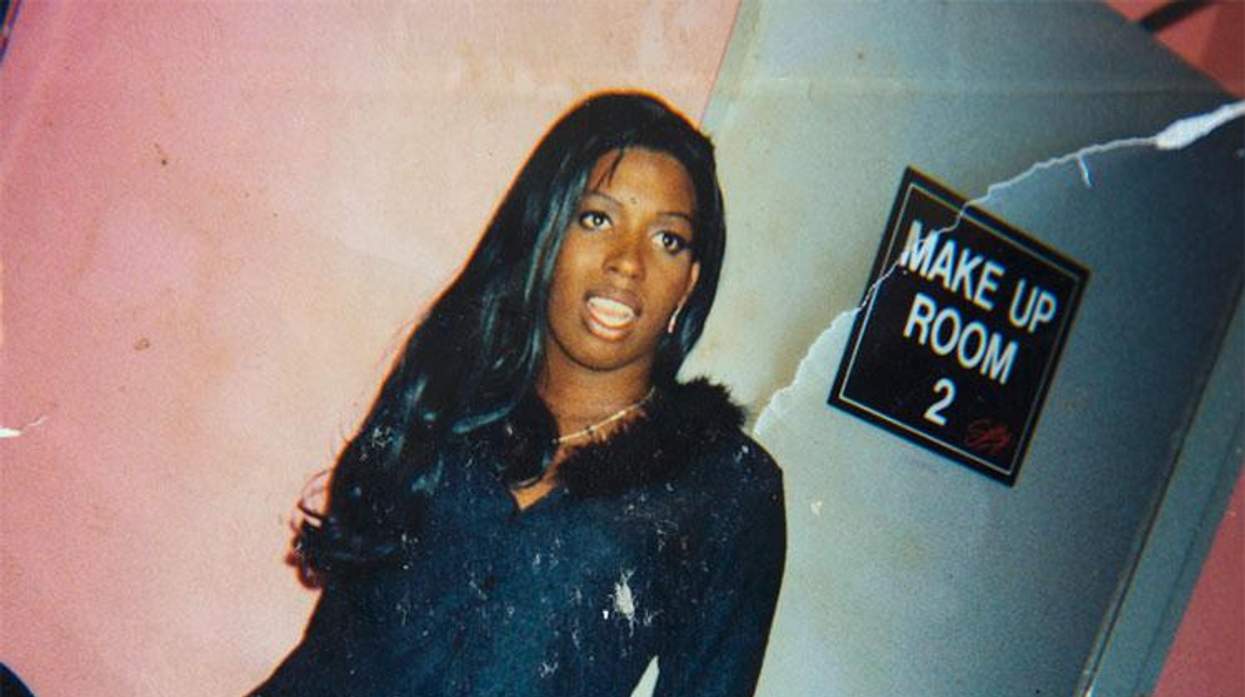Just two weeks after she was released from Augusta State Medical Prison in Georgia, Ashley Diamond finally heard some good news from a federal judge. She would be allowed to pursue her legal claim that the Department of Corrections in Georgia unlawfully discriminated against her because she is a transgender woman, not only denying her medically necessary transition-related care but allegedly failing to protect her from repeated rapes and assaults while she spent three years incarcerated with men.
"It was torture. I might be free now, but I am still struggling," Diamond says in a phone interview with The Advocate. "Straight out of solitary confinement, but into another confinement here on parole. Parole stipulates that I must stay here in Rome [Ga.], and this town can be like a prison too. Yes, it's a town in the Deep South, and down here you feel it even more that the transgender issue is the civil rights issue of our time."
The latest development in Diamond's case, which epitomizes the struggles of transgender inmates nationwide, arrived just days after that call, when U.S. District Judge Marc Thomas Treadwell denied the state's motion to dismiss in Diamond v. Owens et. al on September 14. Treadwell's decision, while not a final judgment, does pave the way for Diamond's case to proceed to discovery and trial, according to a court filing provided to The Advocate by the Southern Poverty Law Center.
Diamond, 37 and originally from Rome, was released from Augusta State Medical Prison August 31 after facing a harrowing three years of incarceration at various Georgia prisons, where, she alleges, she was repeatedly physically and sexually assaulted, interned at men's facilities despite her female gender identity, relocated after receiving threats, denied medically necessary health care, and subjected to pronounced, near-daily verbal harassment.
Originally given an 11-year sentence for a conviction of nonviolent burglary and theft, Diamond explains that her parole could last eight years. Her hometown of Rome is the largest town on the foothills of the Appalachian Mountains. But, she explains:
"It's still a small town in the Deep South, a former cotton-port town that has never been right to black or trans people or anybody different. Being raised in the Deep South, I have enough experience with prejudice to know that it still exists. Rome feels a long way from Atlanta. If you can't make it to a big city, then you're spinning your wheels here, and trying to make an income is hard so you get into trouble just to try to make it, and now I am back here on parole."

Diamond's experience of feeling trapped in a small town in the Deep South resembles that of Alena Bradford, another low-to-no income black trans woman whose story of living in Albany, Ga., gained attention following a July 24 article in U.K. newspaper The Guardian. Transgender people, be they incarcerated or not, face profound obstacles in Southern states, where there are still few laws that protect them from discrimination in housing and employment, few statutes to address hate crimes, and few avenues to obtain affirming, competent health care, as the Human Rights Campaign's interactive Maps of State Laws and Policies makes clear.
Speaking to The Advocate, Diamond details the excruciating, multifaceted harm she experienced while continually denied hormone therapy, which she had been on for nearly two decades before she was incarcerated:
"When they denied me [hormone therapy] I felt more than anxiety attacks. I felt physical pain, pain from watching your body morph, withdrawing, and those are medical problems. There were times I felt like I would die, when guards dragged me on pavement to solitary [confinement]."
And Diamond's struggle for humane, adequate care isn't unique to trans women housed in Georgia's correctional system. The Advocate continues to follow the case of Ky Peterson, a black trans man from rural Americus, Ga., who is serving a questionably timed sentence for killing his rapist, has been repeatedly denied access to his own medically necessary transition-related care, and was often placed in solitary confinement.
Diamond's early release marked a breakthrough in her struggle against the Georgia Department of Corrections, prison reform advocates noted. Although her claims of discrimination and violations of her Eighth Amendment rights got a helping hand from the Department of Justice in April when the federal agency issued a statement supporting her claims, her early release was nearly unprecedented.
"According to Georgia's State Board of Pardons and Paroles, it is rare for inmates to actually be granted parole at their initial eligibility date, and even less common for inmates to be released early, as is the case with Ms. Diamond, who was released several months before her initial eligibility date in November 2015," explains Chinyere Ezie, an SPLC staff attorney who is representing Diamond. "This date changed inexplicably to July earlier this month."
When asked if Diamond's early parole might be considered a tacit acknowledgment by the Georgia Department of Corrections that it cannot adequately and safely house trans inmates, Ezie is straightforward.
"Although the department has made statements to the contrary, that is precisely what we believe," Ezie says in an email exchange with The Advocate. "It hardly seems like a coincidence that Ashley's release came days after we filed papers with the court highlighting the Georgia Department of Corrections' continued failings and unwillingness to provide Ashley and other transgender inmates safe and appropriate housing or adequate medical care, as the Constitution requires."
Now,Ezie expects to take full advantage of Judge Treadwell's rejection of the state's attempt to dismiss Diamond's case, pressing on with the lawsuit vigorously. "SPLC's advocacy on behalf of Ashley Diamond and transgender inmates like her is far from over," Ezie promises The Advocate. "Our lawsuit against the Georgia Department of Corrections is still ongoing, and we are monitoring the experiences of other transgender inmates currently incarcerated in Georgia, who woefully remain without care. Because the abuses we are seeing are pursuant to patterns or practices within the department, we have not ruled out seeking further intervention -- both from the court and the Department of Justice."
For her part, even while her movement is limited in her small Georgia hometown, Diamond is clear about her mission. "Why is this lawsuit important?" she asks rhetorically. "So what happened to me never happens again."





































































Charlie Kirk DID say stoning gay people was the 'perfect law' — and these other heinous quotes